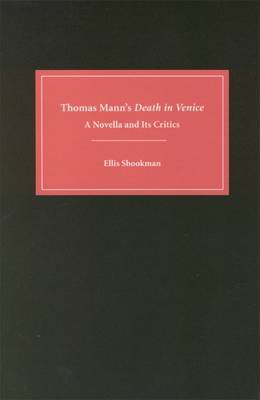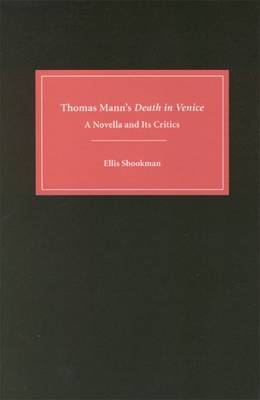
- Afhalen na 1 uur in een winkel met voorraad
- Gratis thuislevering in België vanaf € 30
- Ruim aanbod met 7 miljoen producten
- Afhalen na 1 uur in een winkel met voorraad
- Gratis thuislevering in België vanaf € 30
- Ruim aanbod met 7 miljoen producten
Zoeken
Omschrijving
Study of the critical reception of one of the most famous and widely read works of modern literature. Thomas Mann's 1912 novella Death in Venice is one of the most famous and widely read texts in all of modern literature, raising such issues as beauty and decadence, eros and irony, and aesthetics and morality. The amount and variety of criticism on the work is enormous, and ranges from psychoanalytic criticism and readings inspired by Mann's own homosexuality to inquiries into the place of the novella in Mann's oeuvre, its structure and style, and its symbolism and politics. Critics have also drawn connections between the novella and works of Plato, Euripides, Goethe, Schopenhauer, Platen, Wagner, Nietzsche, Gide, and Conrad. Ellis Shookman surveys the reception of Deathin Venice, analyzing several hundred books, articles, and other reactions to the novella, proceeding in a chronological manner that allows a historical perspective. Critics cited include Heinrich Mann, Hermann Broch, D. H. Lawrence, Karl Kraus, Kenneth Burke, Georg Lukàcs, Wolfgang Koeppen, Mario Vargas Llosa, and Thomas Mann himself. Particular attention is paid to Luchino Visconti's film, Benjamin Britten's opera, and to other more recent creative adaptations, both in Germany and throughout the world. Ellis Shookman is associate professor of German at Dartmouth College.
Specificaties
Betrokkenen
- Auteur(s):
- Uitgeverij:
Inhoud
- Aantal bladzijden:
- 320
- Taal:
- Engels
- Reeks:
- Reeksnummer:
- nr. 1
Eigenschappen
- Productcode (EAN):
- 9781571130563
- Verschijningsdatum:
- 12/06/2003
- Uitvoering:
- Hardcover
- Formaat:
- Genaaid
- Afmetingen:
- 162 mm x 235 mm
- Gewicht:
- 603 g

Alleen bij Standaard Boekhandel
+ 418 punten op je klantenkaart van Standaard Boekhandel
Beoordelingen
We publiceren alleen reviews die voldoen aan de voorwaarden voor reviews. Bekijk onze voorwaarden voor reviews.








